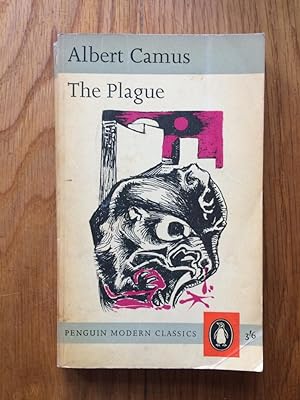
And the public cycles incoherently through moods: denial, dread, a growing sense of panic sudden gusts of piety, followed by gusts of licentious abandon. A priest delivers a harangue, the newspapers hawk counterfeit remedies. But the infection picks up steam, spreading according to a geometric progression, producing a steeply rising “death graph.” En masse, the city is quarantined, but inside its walls there is a shortage of medical staff and lifesaving equipment and, yes, a controversy over whether masks are useless.Īt first, the epidemic, like all catastrophes, secretly confirms what everyone knew already that is, it extends the narcissism of the times into the new era, often via the forbidden hope - that it will smite one’s enemies while sparing oneself. It begins inconspicuously, with the appearance of a few disordered rats, then works its way virulently through the human population, as aided by indifference, hypocrisy, laziness. In a commercial port in Algeria, a disease appears, as if from nowhere. Its relevance lashes you across the face. But - as I have now, belatedly, discovered - there’s no substitute for finally sitting down and reading the 1947 novel “ The Plague,” by Albert Camus. Some books are so venerated, so sacralized, they are almost forbidding to the touch. In the aftermath of Trump’s victory, readers seized for obvious reasons on one of these, Orwell’s “ 1984.” Now, understandably, they’re reaching for the other.

In the relatively brief period of time between, say, Hiroshima and the dawn of the somnolent ’50s, as Keynesian policymakers were designing the welfare state, two writers produced two masterpieces of political introspection. The last time the globe experienced a huge, simultaneous, nearly universal reset was immediately after World War II. He doesn’t dare come closer, but he has something he wants to say: “Perhaps this will be a Great Reset.” A friend emails from the Bay Area to say she’s baked her first loaf of bread another writes from Australia to say that this epidemic will be “a giant mirror held up to everyone,” and that he is reading Mary Shelley’s “ The Last Man.” A neighbor walking his dog halloos from across the fence. We are living in the eerie, low-pressure vacuum before the storm.

In my self-isolating household in upstate New York, the pandemic has thus far produced boredom eating, boredom watching, hiking, candlelight dinners and, later in the evening, some reading out loud.


 0 kommentar(er)
0 kommentar(er)
